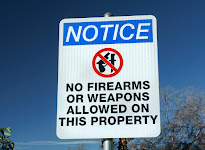Learning Goal 1: Improve Physical Fitness and Overall Health
- Partner with Bryan to ensure accountability
- Go to sleep at a reasonable time every night to get up early and workout. Lack of sleep and moving cannot be an excuse.
- Get enrolled in fitness class at next base / find new workout friends
- Slowly incorporate cardio into the exercise routine.
- Gradually incorporate frequency of training each week until running 3 times a week.
- Gradually increase the distance each week.
- Sign up for 5K that begins 3 months from training start date to allow myself ample training time to prepare and hold myself accountable.
- Prepare meal plan and menu every Sunday.
- Grocery shop every Sunday and follow through on purchasing menu items.
- Review weekly family activity schedule to prepare for dinner conflicts accordingly.
Learning Goal 2: Complete Master’s Degree & graduate by July 31, 2021
- Complete Discussion board post & 2 replies
- Complete General assignment
- Complete/post this blog
- Finish strong
- Plan future schedules around coursework.
- Work with advisor to ensure eligibility
- Enroll for the course
- Complete course
- Apply for graduation
- Plan date/time
- Invite friends and family to ceremony
Learning Goal 3: Create a healthy work-life balance full of mindfulness
Action Steps:
- Continue reading/researching mindfulness
- Find a church in new town that I connect with
- Attend 4 weekend masses in a row.
Action Steps:
- Do a tech-free day or weekend before the end of January.
- Only listen to mindfulness podcasts to/from work
- Set limits on my phone like I do for the kids
- Discuss with Bryan and family about joining
Action Steps:
- Research different types of meditation
- Dedicate 10 minutes a day after waking up to meditation
- Discuss meditation with friends and family who have prior experience.
Seeing your personal vision become a reality will not be an easy journey. There will inevitably be some obstacles along the way. You will need people in your life to help support you and achieve your learning goals. There may even be some setbacks to accomplishing these goals, but you must see them as temporary and continue Look to your husband, kids, family, friends, and coworkers to be your greatest sources of support.




































